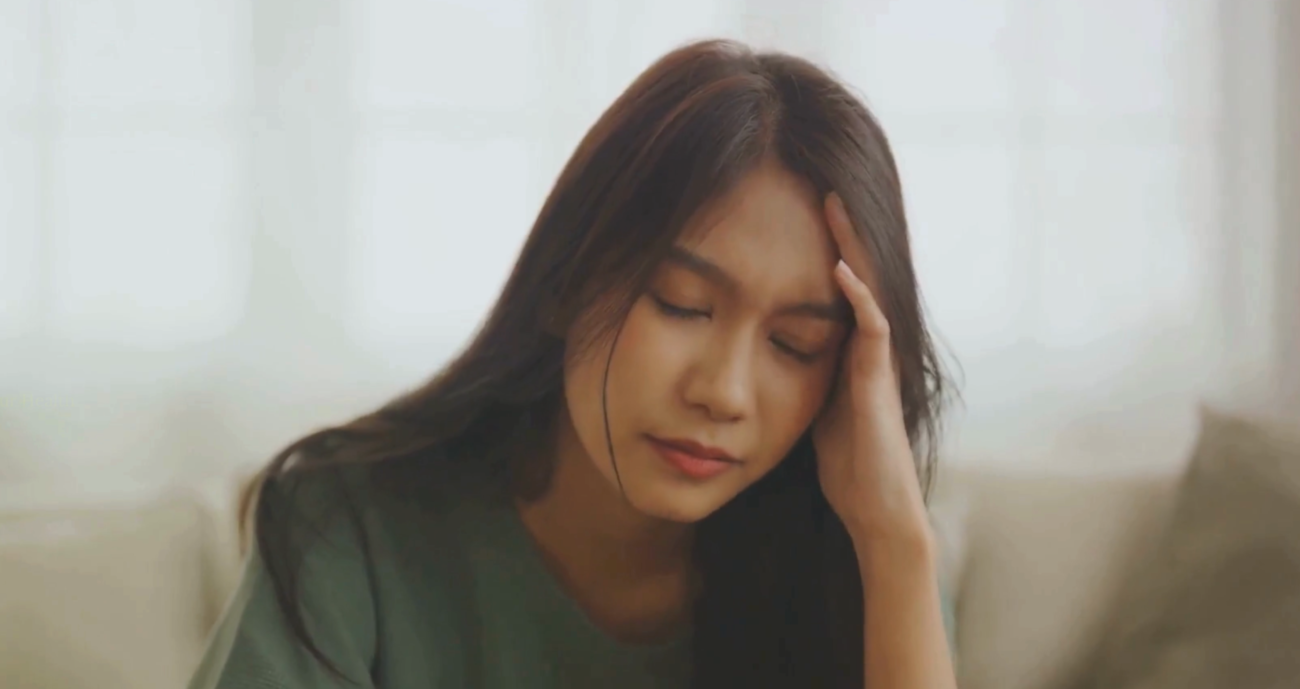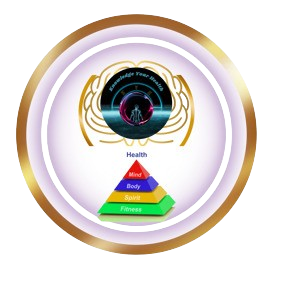Increased Heart rate
Increased heart rate is a common symptom experienced by those struggling with anxiety symptoms. It is the body’s natural response to stress and fear, often referred to as the “fight or flight” response. When we feel anxious or threatened, our bodies release hormones such as adrenaline and cortisol, causing an increase in heart rate.
An increased heart rate during moments of anxiety is entirely normal and even beneficial in certain situations. The surge of adrenaline prepares us to take action in response to a perceived threat. This can be helpful when faced with real danger, but for individuals experiencing chronic anxiety, this fight or flight response may occur too frequently and intensely.
One potential reason for the elevated heart rate during anxiety is due to changes in our breathing patterns. Many people who experience anxiety tend to take shallow breaths, which can lead to reduced blood flow and oxygenation in the body. In response, the heart must pump faster to compensate for this lack of oxygenated blood, resulting in an increased heart rate.
Another factor that may contribute to an increased heart rate during periods of anxiety is muscle tension. Anxiety causes muscles throughout the body to contract and tense up as part of preparing for potential danger. This tension can also impact blood flow circulation throughout the body, leading to an elevated heart rate.
In addition, research suggests that people with chronic anxiety tend to have higher levels of activity in their sympathetic nervous system compared to those without anxiety disorders. This system controls our fight or flight response and stimulates various physiological reactions like an increased heart rate when faced with stressors.
While having a slightly elevated heart rate during occasional stressful situations is not necessarily concerning, persistent high levels of stress over time can take a toll on your cardiovascular system. Chronic stress has been linked with various health issues such as high blood pressure and cardiovascular disease.
Fortunately, there are steps you can take if you notice your resting or heightened heart rates becoming increasingly common when dealing with anxious thoughts or situations. Practicing relaxation techniques, such as deep breathing exercises and progressive muscle relaxation, can help to reduce tension in the body and promote a slower heart rate. Regular exercise is another effective way to reduce anxiety symptoms and keep your heart healthy.
In some cases, medication or therapy may also be necessary to manage chronic anxiety and its physiological effects on the body. It is essential to consult with a mental health professional for an accurate diagnosis and appropriate treatment plan tailored to your unique needs.
An increased heart rate during periods of anxiety is a natural response that can be managed through various strategies. By understanding the connection between our thoughts, emotions, and physical symptoms, we can take steps towards reducing anxiety’s impact on our overall well being.
Watch these Amazing Life Changing Vitamins

Stomach Issues
Stomach issues are a common symptom of anxiety and can greatly impact one’s daily life. These issues can range from mild discomfort to severe pain and can significantly affect an individual’s ability to function normally. Understanding the connection between anxiety and stomach issues is crucial in managing both physical and mental health.
Anxiety causes the body to produce excess amounts of adrenaline, which triggers the fight or flight response. This response is meant to protect us from danger, but when it is activated constantly due to anxiety, it can lead to a variety of physical symptoms, including stomach problems. When adrenaline levels are high, blood flow is diverted away from non-essential organs such as the digestive system, causing tension in the muscles and slowing down digestion. This disruption in normal bodily functions can result in various stomach discomforts such as nausea, bloating, cramping, diarrhea or constipation.
In addition to these physical symptoms, individuals with anxiety may also experience psychological distress related to their stomach issues. The fear of having an embarrassing accident or being unable to control their bodily functions can be a source of ongoing anxiety for many people dealing with stomach problems caused by anxiety.
Furthermore, research has shown that there is a strong link between our gut microbiome (the collection of microorganisms living in our digestive tract) and our mental health. Stress and anxiety alter the balance of good bacteria in our gut, leading to inflammation and further exacerbating existing stomach issues.
It’s essential to address both the physiological and psychological components when dealing with stomach problems caused by anxiety. Seeking professional help for your mental health while also practicing self-care techniques such as relaxation exercises (e.g., deep breathing), eating balanced meals, avoiding triggers (such as caffeine or spicy foods), getting enough sleep and staying physically active can all help manage these symptoms.
If you experience frequent bouts of severe or persistent stomach issues without any apparent physical cause after ruling out any underlying medical conditions; it may be helpful to consult a mental health professional. They can help you identify and manage the underlying causes of your anxiety and provide you with coping strategies tailored to your specific needs.
Stomach issues are a common symptom of anxiety that should not be ignored. By understanding the relationship between anxiety and the digestive system, individuals can take proactive steps towards managing their symptoms and improving their overall quality of life. Seeking support from both medical and mental health professionals is crucial in addressing these issues effectively.
Headaches
Headaches are a common physical symptom of anxiety, affecting individuals of all ages and backgrounds. While most people experience occasional headaches due to factors such as stress or dehydration, those with chronic anxiety may be more susceptible to frequent and intense headaches. In this section, we will explore the relationship between anxiety and headaches, their various forms and potential causes.
Firstly, it is important to understand that there are different types of headaches, each with its own set of symptoms. One of the most common types associated with anxiety is tension headache. This type of headache usually presents as a dull ache on both sides of the head, often accompanied by tightness in the neck and shoulders. Tension headaches can last anywhere from a few hours to several days and can be triggered by stress and muscle tension.
Another type of headache commonly linked to anxiety is migraine. Migraines are typically characterized by severe pain on one side of the head, accompanied by other symptoms such as nausea, sensitivity to light and sound, and visual disturbances. While migraines have complex physiological origins involving changes in brain chemistry, they can also be triggered by emotional stressors such as anxiety.
In addition to these two primary types, some individuals may experience cluster headaches which occur in cycles over a period of weeks or months. Cluster headaches often present as severe pain behind one eye or on one side of the face and are sometimes referred to as “suicide” headaches due to their intensity.
So what is the connection between anxiety and headaches? Research suggests that increased levels of stress hormones like cortisol can trigger changes in brain chemistry that contribute to inflammation in blood vessels which can cause migraines or tension headaches. Additionally, psychological factors such as perfectionism or catastrophizing (imagining worst-case scenarios) could also contribute to physical tension leading to tension-type headaches.
Furthermore, living with chronic anxiety often means dealing with other co-existing conditions that could also lead to an increase in headache frequency and intensity. For example, individuals with anxiety may also have other physical health conditions such as TMJ (temporomandibular joint disorder) or fibromyalgia which can cause headaches. It is essential to address any underlying health issues that may be contributing to your headaches in order to effectively manage them.
Headaches are a common but distressing symptom of anxiety. Understanding the various types of headaches, their symptoms and potential causes can help individuals recognize and address these issues in order to better manage their anxiety and overall well-being. In the next section, we will explore some practical ways to alleviate headaches caused by anxiety.
Dizziness/Vertigo
Dizziness and vertigo are two commonly experienced symptoms of anxiety that can significantly impact a person’s quality of life. While these terms are often used interchangeably, they actually refer to distinct sensations with different underlying causes.
Dizziness is a broad term that describes the feeling of being lightheaded or unsteady. It can also manifest as a spinning, floating, or swaying sensation. This can occur for various reasons such as dehydration, low blood sugar, inner ear problems, medication side effects, and anxiety disorders.
On the other hand, vertigo refers to a false sense of motion where an individual may feel like their surroundings are spinning or moving around them. This sensation occurs because of an issue with the vestibular system in the inner ear or parts of the brain responsible for balance and spatial orientation. Vertigo attacks may be brief or prolonged and can cause nausea, vomiting, sweating, and difficulty balancing.
Although dizziness and vertigo have different origins, they both have psychological factors associated with them. Stress is one trigger that can exacerbate these symptoms in individuals who experience anxiety disorders. The body’s stress response produces adrenaline which increases heart rate and blood pressure – leading to lightheadedness and dizziness. Additionally, when experiencing fear or panic during an anxiety attack, some people may hyperventilate which changes carbon dioxide levels in the blood causing further dizziness.
Furthermore, those with chronic anxiety may develop phobias related to specific triggers such as heights or crowded places that could induce feelings of disorientation and imbalance. In severe cases called agoraphobia – characterized by fear of open spaces – individuals may limit their movements outside their homes due to worries about losing control over their bodies.
It is essential to seek medical attention if you experience frequent episodes of dizziness or vertigo without apparent causes as it may signify underlying health conditions like migraines or neurological diseases. Your doctor might order diagnostic tests like imaging scans or blood tests to rule out such possibilities.
If your dizziness and vertigo are primarily anxiety-related, here are some self-care tips that can help alleviate symptoms:
- Practice deep breathing and relaxation techniques to manage stress levels.
- Stay hydrated and maintain a balanced diet to prevent low blood sugar.
- Avoid triggers such as caffeine, alcohol, and nicotine.
- Get enough restorative sleep.
- Try vestibular exercises or physical therapy if you have an inner ear problem.
- Consult with a mental health professional for personalized treatment plans and additional coping strategies.
Remember that while dizziness and vertigo may be unpleasant, they are manageable symptoms of anxiety that can improve with proper self-care, treatment, and support from loved ones. Take care of yourself, know your limits, and seek help when needed to manage the impact of these sensations on your daily life effectively.
Psychological Anxiety Symptoms
Psychological symptoms are often the most prominent and recognizable signs of anxiety. They can manifest in various ways and may differ from person to person, but they all revolve around an individual’s mental state. In this section, we will take a closer look at some common psychological symptoms of anxiety that affect people’s daily lives.
One key psychological symptom of anxiety is persistent worry or fear. This excessive worrying can be debilitating and uncontrollable, making it difficult for individuals to relax or concentrate on tasks. Worries about everyday activities, relationships, work/school performance or health are common themes for those with anxiety. These worries also tend to be irrational or exaggerated in nature, creating unnecessary distress and interfering with normal functioning.
Along with chronic worry, individuals with anxiety may also experience recurring negative thoughts. These thoughts can range from self-criticism and doubt to feelings of worthlessness or hopelessness. Negative thinking patterns can worsen anxiety symptoms by fueling self-doubt and increasing feelings of insecurity.
Another common psychological symptom is restlessness or irritability. People with anxiety often struggle to keep still or remain calm when feeling anxious, leading to difficulty concentrating and irritability towards others. This emotional agitation can make it challenging for individuals to engage in daily activities without becoming overwhelmed.
It is not uncommon for people with anxiety to also experience physical sensations such as tension headaches, muscle aches, or stomach discomforts due to prolonged stress responses in their bodies. The physical discomfort caused by these bodily sensations further contributes to increased stress levels.
In cases where the underlying cause of anxiety is linked to specific triggers such as social situations or certain phobias, avoidance behaviours may develop as another psychological symptom. These behaviours involve avoiding places, events, activities that could potentially trigger feelings of distress or panic attacks.
Another significant psychological symptom associated with anxiety is difficulty sleeping. People with generalised anxiety disorder (GAD) often report difficulties falling asleep due to racing thoughts and worries, leading to chronic fatigue and a decrease in overall well-being.
Psychological symptoms are common signs of anxiety that can significantly impact an individual’s daily life. These symptoms often coexist with other physical manifestations of anxiety and can exacerbate the condition if left untreated. It is essential to recognise these psychological symptoms early on and seek professional help to manage them effectively.

Behavioural Symptoms
Behavioural symptoms refer to the actions and behaviours that are exhibited by an individual experiencing anxiety. These symptoms may manifest differently from person to person, but they all stem from the same underlying root cause – anxiety.
One of the most common behavioural symptoms of anxiety is avoidance behaviour. This refers to the tendency of individuals to avoid situations or activities that make them feel anxious or uncomfortable. For example, someone with social anxiety may avoid attending social events or giving presentations in fear of being judged or embarrassing themselves. This avoidance behaviour can often lead to isolation and further aggravate feelings of anxiety.
Another common behavioural symptom is restlessness. People with anxiety often struggle with racing thoughts and find it difficult to relax or calm their minds. They may constantly fidget, tap their feet, or move around in an attempt to release some tension and find relief from their anxious thoughts.
In addition, individuals with anxiety may also exhibit irritability as a result of their constant state of worry and stress. This can manifest as being quick-tempered, easily agitated, and having a low tolerance for frustration.
Substance abuse is another behavioural symptom that can arise from anxiety. Many people turn to drugs or alcohol in an attempt to self-medicate and alleviate their symptoms temporarily. However, this can eventually lead to substance dependency and worsen overall mental health.
Procrastination is also commonly seen among those struggling with anxiety. People may put off important tasks or decisions due to fear of failure or making mistakes, which only increases feelings of stress and pressure when deadlines loom closer.
Some individuals with severe forms of anxiety may experience panic attacks – sudden episodes characterised by intense physical sensations such as heart palpitations, chest tightness, shortness of breath, dizziness, and trembling. In response to these overwhelming physical sensations, a person having a panic attack may engage in escape behaviours such as leaving the situation they are in abruptly or seeking medical help even when no medical intervention is required.
Changes in sleeping and eating patterns are also behavioural symptoms commonly associated with anxiety. Some individuals may experience difficulty falling asleep or staying asleep due to racing thoughts and worry. On the other hand, some may use food as a coping mechanism, leading to either overeating or under-eating.
It is important to remember that these behavioural symptoms are not simply character flaws but are a result of an underlying medical condition. Seeking professional help can assist in properly managing these symptoms and improving overall mental well-being.


One thought on ““Anxiety Symptoms Power Fully Decoded: Understanding Increased Heart Rate, Stomach Issues, and More” Part-3”